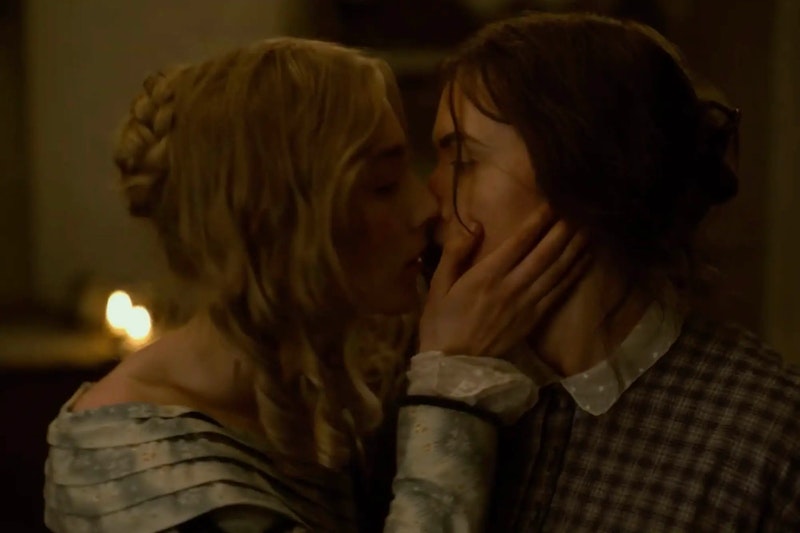The movie Ammonite came out in 2020, but I watched it for the second time this week and have come out as queer since then so I have some new thoughts and perspective.
The movie takes place in 1840s England and is the story of acclaimed but overlooked fossil hunter Mary Anning (Kate Winslet) and a young woman Charlotte Murchison (Saoirse Ronan) sent to convalesce by the sea due to what her husband describes as “melancholia.” They develop an intense relationship that The New York Times couldn’t help but refer to “Love on the Rocks” in their review.
Debates about the accuracy of the film have knocked around since its release during the pandemic. Some complain about the lack of historical accuracy with regard to Anning’s paleontogical contribtutions: in 1823, Anning uncovered the first intact skeleton of a Plesiosaur, a nine-foot long reptile-like creature, which created so much attention from geologists that it was heavily discussed at the Geological Society of London.
She wasn’t allowed to participate in the society because she was a woman, even though she was credited with influencing Charles Darwin’s theory of evolution—he cited her fossils in his book On the Origin of Species. Less significantly but still another cultural impact: the tongue twister “she sells seashells by the seashore” is based on her seaside shop.
Anning was never married and lived with her mother Molly, who lost eight of her 10 children to a variety of Victorian bad luck reasons; Molly’s portrayed in the film as grim; she finds solace only in polishing a small collection of figurines.
Director Francis Lee made a choice to portray Mary Anning in a clandestine lesbian relationship with her noted close friend Charlotte Murchision, a geologist (though, like many of Anning’s achievements this wasn’t really covered in the film, which also isn’t a biopic).
“Would these newspaper writers have felt the need to whip up uninformed quotes from self-proclaimed experts if the character’s sexuality had been assumed to be heterosexual?” asked Lee, adding “After seeing queer history be routinely ‘straightened’ throughout culture, and given a historical figure where there is no evidence whatsoever of a heterosexual relationship, is it not permissible to view that person within another context...?”
Brian Tellerico calls the film “one of the best performances of Kate Winslet’s career” and adds, “the film explodes in passionate love-making scenes that contrast with the drudgery of the rest of the film. They feel like drowning people gasping for air or people in darkness seeing blinding light for the first time.”
Regarding the controversy over the choice to make her character a lesbian, Tellerico notes, “Anning’s descendants have questioned using a real person for a story like this, but that conversation ends for me when we ask ourselves if people would object to a heterosexual romance being fictionally placed on Anning (only the most puritanical historians would do so). With ‘Ammonite,’ Francis Lee is reaching for something deeper than a biopic or history lesson. It is a story of connection, something we all seek, even after our lives seem to have made it impossible to find.”
I’m a huge fan of the film, and enjoyed watching it even more this second time. As a queer, reclusive beachcomber who was born on Mary Anning’s 170th birthday (love her Instagram and the efforts of a young British girl to have a statue erected in her honor), Kate Winslet’s performance rang true on many levels; probably the main one earning a living on broken things from the ocean. Perhaps also being a poor, cranky workaholic Taurus/Gemini cusp who’s comfortable if occasionally salty about being an outcast from polite “society.”
It’s a hot film! From the moment Mary rubs salve on Charlotte to the moment when the hardest fossil of her stoic face is finally cracked with a smile at the sight of Charlotte entering a room for their date to the opera, Lee has created a beautiful historical romance, and what’s not to love about it?
Family members gave mixed reviews on the portrayal of their ancestor as gay. But the cool one, Lorraine Anning, said: “To be honest, it doesn’t matter; as long as it’s well presented and tastefully done and in the spirit of Mary Anning, then I think it’s brilliant.”

